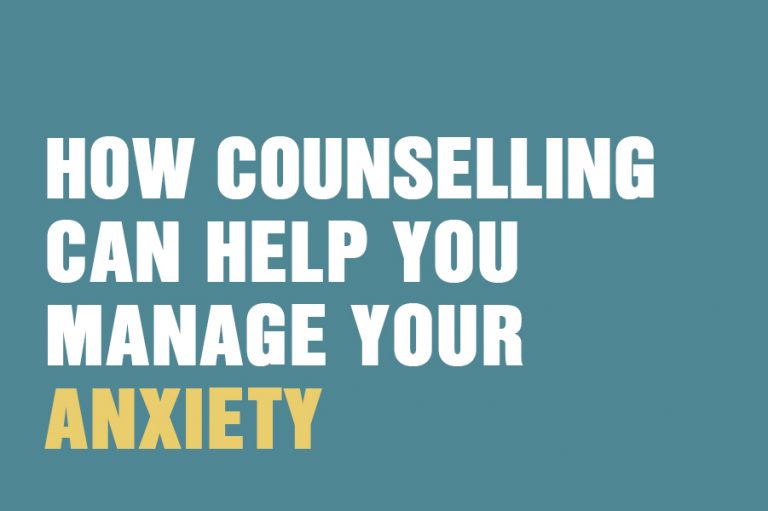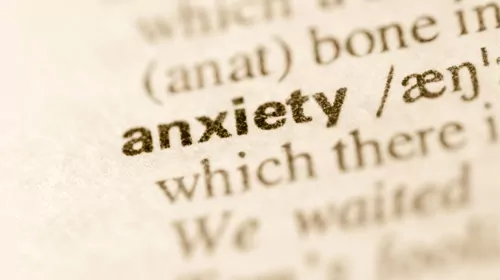Anxiety is the top reason for seeking therapeutic support. Anxiety is on a spectrum, and the symptoms may go from daily worrying to a constant sense of unease, and even to full-blown panic attacks.
If anxiety is becoming an issue for you, then counselling can help you to manage your symptoms and to change the relationship with your anxiety.
Two therapists from our low cost counselling service outline how they work with anxiety.
You may come to therapy believing that something is wrong with you when you are experiencing anxiety.

However, anxiety is as much a social issue as it is a personal one. We live in a world full of pressures, expectations and obligations. So, if you come for therapy with high levels of anxiety, the first step is
to help you realise that your anxiety is part of a bigger social picture that you operate in, and secondly that deep-d
own anxiety is often a symptom of something else: loneliness, existential fears, or identity issues.
What lies at the heart of anxiety is the need to control people and events in your world. If total control is not possible, this is where it all collapses. Anxiety, including its worst case – panic attacks – comes with a feeling that the world is not a safe place. So, a therapy room can become an island of safety and stability, which is healing in itself.
Anxiety is also strongly associated with perfectionism and “the good girl/good boy” syndrome. Here a therapist can help you to become aware of your habitual patterns of behaviour and to notice them in your everyday life. Once you learn to recognise your patterns, they are no longer frightening, and the pressure is relieved. Learning to ask for help, and accepting it, becomes a new invaluable skill.
You may see your anxiety as something sitting in your mind, taking over your thinking: “Why can’t I stop thinking about that?”; “I am always imagining bad things happening”; “I can’t stop worrying.” If you recognise your own thoughts there, then it can be helpful for you to work with a therapist who uses techniques to bring you into your body, sensations and emotions. These techniques may include visualisations, parts work, sand tray, cards work, writing a letter to your body, or journaling emotions. The aim of this work is to achieve “grounding”: helping you to feel stable, calm and centred again. The goal of therapy is to help you get out of the world of the always-worrying mind, and to learn the new skills of being in the present, rather than in the past or future. Katerina Sizova
While everyone can be anxious for various reasons from time to time, people usually seek counselling support when they feel that their anxious thoughts or state are beginning to impact on their health, relationships or life in general.

At this point, if you come to me with anxiety, I want to ensure that you can feel safe in the therapeutic space and in our therapeutic relationship. This is because anxiety can often be accompanied by a feeling of panic and a sense of not being in control or safe. Physically, I strive to create a calming environment by removing anything that can cause panic or distractions i.e. ensuring that the room is well lit, organised and no interruptions of phones/buzzers.
I also try and help you understand that you’re not weird, and that anxiety is what you feel, not who you are. It’s important that you feel able to tell your story at your pace, and in a way that’s comfortable for you. This will help me gain a deeper understanding of what’s causing your anxiety, with a view to providing the support you need.
I believe that counselling can help reframe the type of anxiety-based thinking that can leave you feeling perplexed or constantly worried.
Counselling can also do the following in supporting people with anxiety:
- Provide a therapeutic relationship and a safe environment for you to be yourself and express your true feelings without prejudice or judgement.
- Encourage self-awareness so you can identify the background and triggers to your anxiety
- Create a holding space for you to work through your issues. It can also provide a new lens through which you can begin to view your issues from a different, but healthier perspective.
- Empower your through the application of various therapeutic strategies/techniques to help reduce or overcome your feelings of anxiety (including mindfulness and CBT exercises).
- Provide practical tools and support needed to help promote a sense of agency and ownership within you towards the achievement of their goals
- Ultimately, through talking and active listening, counselling can support you in feeling less burdened and gaining a sense of freedom to live your life optimally.
Bola Ogundeji, TAC Clapham
If you could benefit from counselling support to help manage your anxiety, get in touch and we will book you in with one of our therapists. You can reach us on 020 8673 4545 and on [email protected] We have sessions available seven days a week.







